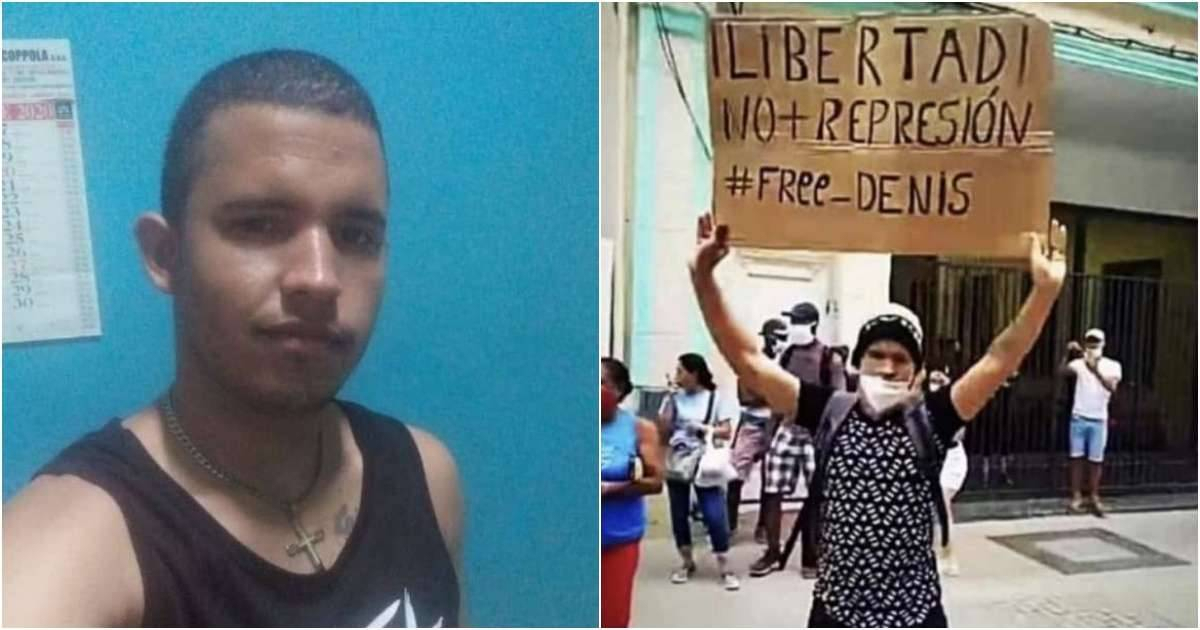
Related videos:
Cuban political prisoner Luis Robles Elizástigui, known as "the young man with the sign," expressed his dissatisfaction with the conditions of his release in a message posted on his Facebook account.
Although he thanked those who fought for his release, Robles emphasized that he does not feel truly free, as the imposed restrictions limit his freedom of movement and expression.
"This supposed freedom is not what we truly deserve," stated Robles, who was released on Thursday after nearly serving a five-year sentence for peacefully protesting in Havana in 2021, where he was arrested for holding a sign demanding an end to repression and the release of political prisoners.
The young man emphasized that, although he is at home with his mother, with whom he is going through a difficult time due to his father's illness, the situation remains challenging.
"Here, thinking as one thinks is a crime. Expressing what one feels is also a crime. I don’t believe that a human being living in such a way can be happy," he added.
"I don't feel happy, because I really should never have gone through everything I've gone through in prison, all the suffering of my mother," he lamented.
He said that "the news didn't excite me as I thought it would to have freedom, because I believe living like this is not what one deserves," he emphasized.
Robles was one of the 553 inmates released as part of a negotiation mediated by the Vatican and the U.S. government, following the announcement of Cuba's removal from the list of state sponsors of terrorism.
The Cuban Observatory of Human Rights (OCDH) confirmed his release, and Robles' mother, Yindra Elizástigui Jardines, also stated that her son had already returned home, although under probation.
The case of Robles became a symbol of the fight for freedom of expression in Cuba, and his conviction, based on charges of "enemy propaganda" and "disobedience," was widely criticized by human rights advocates, who believe the accusations were unfounded.
During his time in prison, Robles was transferred between several facilities, including Combinado del Este, a maximum-security prison, and then to a minimum-security regime at the La Lima correctional work camp.
In her latest transfer, his mother reported threats from the State Security against her son due to his public statements on social media demanding his freedom.
Despite the difficult conditions, Robles thanked those who fought for his release and expressed his hope that someday Cubans would be able to enjoy true freedom.
This Friday, the regime stated that it had already released 127
Frequently Asked Questions about the release of Luis Robles and the political situation in Cuba
Why was Luis Robles imprisoned in Cuba?
Luis Robles was imprisoned in Cuba for peacefully protesting in Havana in 2021, holding a sign that called for an end to repression and the release of political prisoners. He was convicted of "enemy propaganda" and "disobedience," charges that many human rights advocates consider baseless.
Under what conditions was Luis Robles released?
Luis Robles has been released on probation, which means he is still subject to restrictions that limit his freedom of movement and expression. Although he is at home, he does not feel truly free because of these conditions.
What does the case of Luis Robles symbolize in Cuba?
The case of Luis Robles has become a symbol of the struggle for freedom of expression in Cuba. His imprisonment and subsequent release have been widely criticized, and his figure represents the resistance against state repression on the island.
What international actions influenced the release of Luis Robles?
The release of Luis Robles was part of an agreement mediated by the Vatican and the United States government, which resulted in the release of 553 prisoners in Cuba. This gesture came after Cuba was removed from the list of state sponsors of terrorism by the United States.
Filed under: